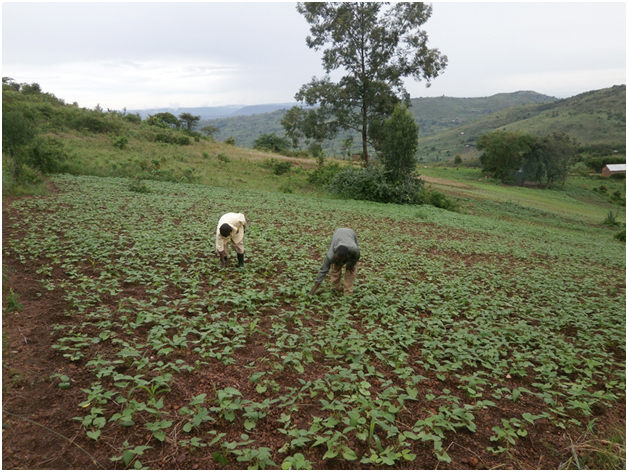Tracy Akwii | November 28, 2016
Gertrude Birungi has been farming for years in Kyadaga village in Uganda’s Rakai district. Recently, she switched to growing two particular varieties of beans—a change that is rewarding her with a good income, thanks to a reliable market.
Two years ago she began planting two new varieties: NABE-4 and RW2145. She started with one acre and 13 kilograms of seed, and has now expanded to five acres.
She is planting these particular varieties of bean because they can be pre-cooked. This means they can be cooked, packaged, and sold—saving families time when they prepare dinner.
Mrs. Birungi doesn’t cook the beans herself. She explains: “My inspiration to plant varieties of beans that can be pre-cooked came after a non-governmental organization working on our area, called Community Enterprise Development Organization, assured us that they would buy the beans after we harvest. This gave me the assurance of [a] market.”
With her sales earnings, Mrs. Birungi bought three cows and started building a house. She says putting food on the plates of her family of seven is no longer a challenge.
Yasin Lutaaya is a research assistant with Community Enterprise Development Organization, or CEDO. He says that after harvest, farmers sort their beans and sell them to his organization. CEDO has plans to cook the beans in a factory and sell them.
Mr. Lutaaya says pre-cooked beans will save consumers a lot of time and energy. Dried beans often take a long time to prepare, and pre-cooked beans save water and fuel.
Thousands of Ugandan farmers are selling their beans to be pre-cooked. Achileo Lugaaju is one of them. Four years ago, the 29-year-old began growing NABE-17, Yareba-1, and NABE-1 varieties and selling them to CEDO.
Mr. Lugaaju is a member of the Kyamulama farmer group in Lyantonde. He says a radio program on Buddu FM helped him have confidence in growing the beans by demonstrating that there are people interested in buying them.
He used his profits to invest in another acre of land, and to purchase a motorbike to use as a boda boda, or motorcycle taxi. He says he is also able to pay his children’s school fees without stress. He adds, “My future plan for my old age is to educate my children such that they can learn English.”
Mr. Lugaaju advises other farmers to believe in themselves—and to attend trainings to learn improved agricultural practices.
